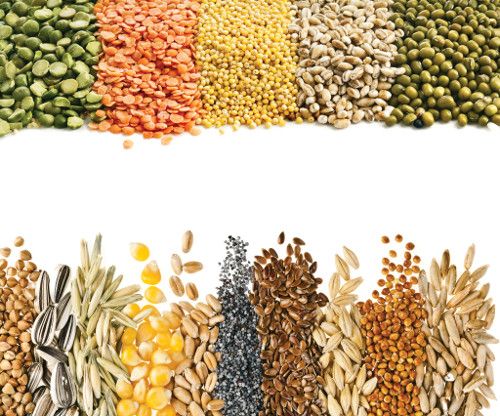Taste Tops Reasons Americans Choose Plant Proteins
Survey results from Mintel show that among 1,876 U.S. internet users aged 18 and older who eat plant-based proteins, taste is the top reason they choose to do so, with 52% of those surveyed ranking it ahead of health (39%), the environment (13%), animal protection (11%), and dietary concerns (10%) as a motivator.
Photo © Shutterstock.com/Madlen

A new survey from Mintel (Chicago) shows that among 1,876 U.S. internet users aged 18 and older who eat plant-based proteins, taste is the top reason they choose to do so, with 52% of those surveyed ranking it ahead of health (39%), the environment (13%), animal protection (11%), and dietary concerns (10%) as a motivator.
“Despite the fact that health attributes, particularly free-from, factor strongly in consumer decisions when purchasing plant-based proteins, at the end of the day, taste is the driving force behind purchase and eating decisions,” said Billy Roberts, senior food and drink analyst, Mintel, in a press statement. “While overall consumption of plant-based proteins remains low, these products benefit from a generally healthy reputation both for consumers’ diets and for the environment, and growing consumer interest in better-for-you lifestyles will continue to drive interest in the category.”
The survey tapped American consumers’ perceptions of plant-based proteins more broadly and found that more than three quarters (76%) view plant-based proteins as healthy, with 46% deeming them more so than animal-based options. Health-focused consumers are more likely to seek plant-based protein products with no artificial ingredients (41%), that are high in protein (35%) and fiber (28%) and that are non-GMO (28%).
But despite their interest in plant proteins’ health and functional attributes, less than half (46%) of consumers trust functional claims on plant-based foods, hinting at an opportunity for brands to communicate their products’ benefits-benefits like transparency, which matters to the seven in 10 (71%) of Americans who want more information about product/ingredient origin on packaging.
Price still dampens some consumers’ perceptions of plant-based foods. Nearly two-thirds (64%) of Americans aged 18 to 34 agree that plant-based foods are more expensive than others, compared to 57% overall. But almost half (47%) of 18- to 34-year-olds see branding as an important purchase cue for plant-based foods, compared to 40% of consumers overall.
Finally, while interest in plant-based proteins may be rising, consumers continue to eat animals. More than two-thirds (67%) believe meat essential to a balanced diet, and just over half (51%) consider a meal minus meat incomplete.
“The opportunity for plant-based proteins appears more as a complement to animal-based proteins than as a wholesale replacement, as our research shows that many consumers are interested in plant-based proteins but still view meat as an important part of a balanced diet,” Roberts noted. “The biggest challenge for the plant-based proteins category continues to be finding the right balance between flavor and health, and discovering the categories where consumers will accept the addition of plant-based varieties.”
Prinova acquires Aplinova to further increase its footprint in Latin America
April 7th 2025Prinova has recently announced the acquisition of Brazilian ingredients distributor Aplinova, which is a provider of specialty ingredients for a range of market segments that include food, beverage, supplements, and personal care.










